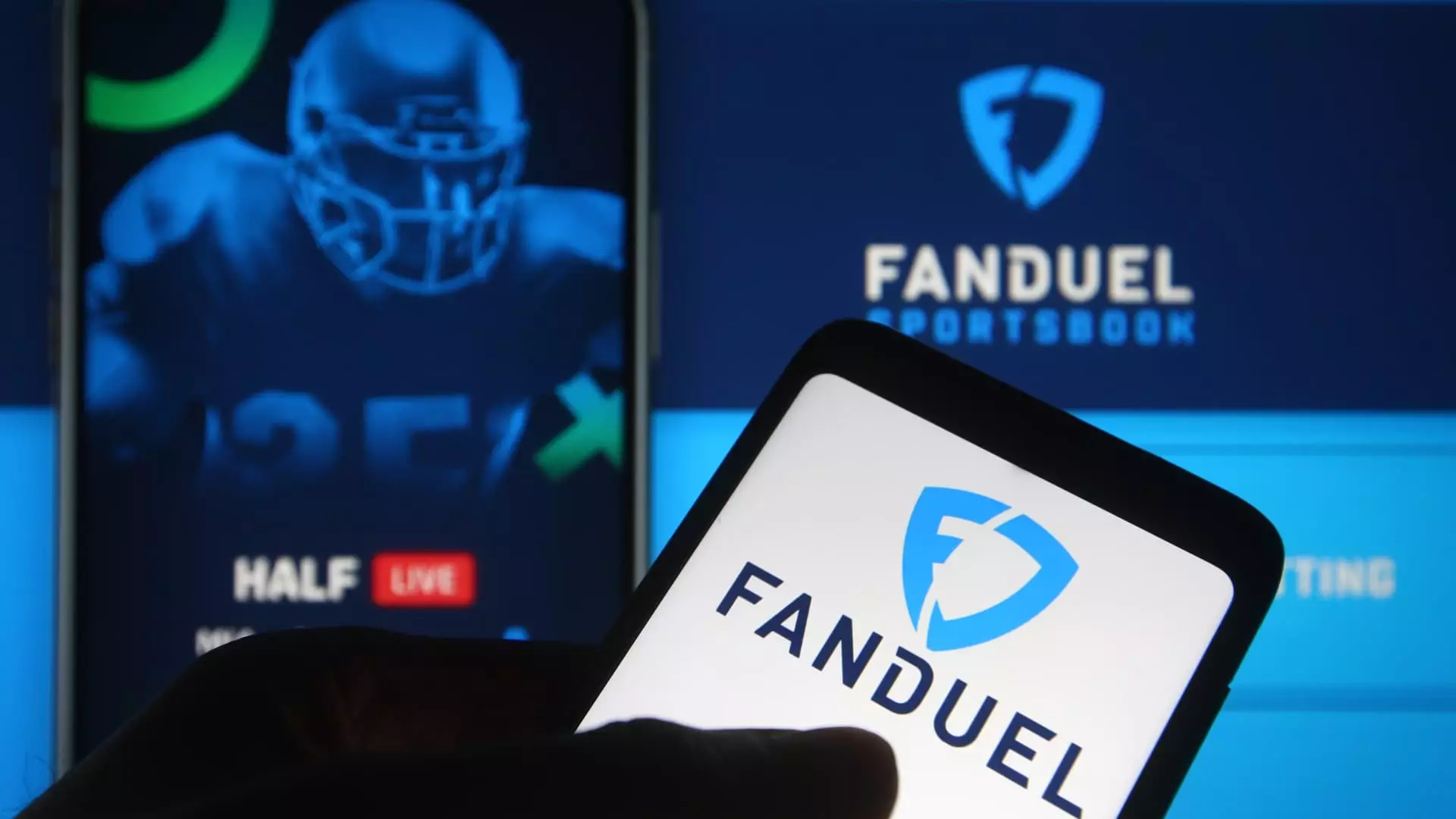The landscape of regional sports networks is undergoing seismic shifts, marked by significant developments involving Diamond Sports and its partnership with FanDuel. As the National Hockey League (NHL) season gets underway and the National Basketball Association (NBA) prepares for its 2024-2025 season, the timing of this collaboration could not be more critical. FanDuel’s forthcoming rebranding of the Bally Sports channels signifies not only a new chapter for Diamond Sports but also a strategic opportunity for FanDuel to cement its status in the sports betting market.
Recently, Diamond Sports announced its agreement with FanDuel, a leading sports betting entity owned by Flutter Entertainment. This partnership is particularly noteworthy as it comes at a time when Diamond Sports is navigating the complexities of bankruptcy protection. If court-approved, this deal would see FanDuel not only rebrand the regional sports networks but also secure a long-term naming rights partnership. This arrangement could potentially allow FanDuel to acquire up to 5% equity in the revamped organization. Such steps could confer significant advantages, not just in terms of visibility, but also in solidifying FanDuel’s influence in the sports media domain.
For Diamond Sports, aligning with FanDuel could alleviate some financial pressures caused by an ambitious strategic realignment aimed at recovering from bankruptcy. The court filings indicate that Diamond has worked tirelessly to negotiate terms that would ensure both parties benefit from this alliance. Although specific financial details remain undisclosed, the implication is that FanDuel’s integration into the brand will give it prime exposure during crucial sporting events.
The Unfolding Saga of Bankruptcy and Partnerships
Diamond Sports’ journey to stabilization has been fraught with challenges. The entity, while operating independently as a subsidiary of Sinclair, has faced significant turbulence since filing for bankruptcy a year ago. The restructuring process has necessitated intricate negotiations with major sports leagues—NBA, NHL, and Major League Baseball (MLB)—in an effort to keep its business afloat. As it stands, the company hopes to exit bankruptcy by December, but the road ahead remains tough, especially given the steady exodus of franchises seeking alternate local viewing arrangements.
The basketball and hockey seasons are particularly pivotal as they showcase an array of licensed regional sports programming that Diamond can no longer guarantee due to contractual disagreements. Various MLB teams have abandoned Diamond Sports over the past seasons. As a direct consequence, 11 MLB franchises are anticipated to leave the network by 2025, a reality underscored by the current shifts where teams like the San Diego Padres and Arizona Diamondbacks have already departed.
The ramifications of this upheaval extend beyond just the corporate landscape; they are also affecting fans and local broadcasting. Teams that have severed ties with Diamond Sports are exploring alternative avenues, including direct streaming partnerships and local broadcasters to ensure their fan base remains engaged. The NHL’s teams, such as the Dallas Stars and Anaheim Ducks, are leading the charge with innovative streaming strategies, reflecting a broader industry trend towards digital platforms.
As Diamond aims to stabilize its operations, FanDuel’s involvement introduces a fresh strategy centered on interactive engagement through sports betting. The collaboration signals an effort to tap into the lucrative nexus of sports media and betting—an area that continues to expand in both popularity and revenue.
This partnership between Diamond Sports and FanDuel represents a microcosm of the broader transformation occurring within the regional sports landscape. While the challenges ahead remain substantial—especially concerning financial obligations and competitive pressures—this collaboration may serve as a catalyst for innovation and recovery. Should Diamond Sports navigate its restructuring successfully, the evolution of branding and partnerships may redefine how regional sports networks coexist with the rapid changes in media consumption patterns and sports betting dynamics. For both Diamond and FanDuel, the potential for profitable growth and audience engagement lies not only in traditional broadcasting, but also in leveraging new technologies and adaptive strategies.

Leave a Reply